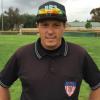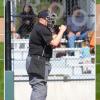Revisiting That Cardinals-Red Sox WS Game That Ended on the Obstruction Call
Umpire-Empire locks topics which have not been active in the last year. The thread you are viewing hasn't been active in 2607 days so you will not be able to post. We do recommend you starting a new topic to find out what's new in the world of umpiring.
-
Similar Content
-
- 3 replies
- 634 views
-
- 0 replies
- 1,273 views
-
- 24 replies
- 7,348 views
-
- 16 replies
- 2,885 views
-
- 1 reply
- 1,643 views
-





Recommended Posts